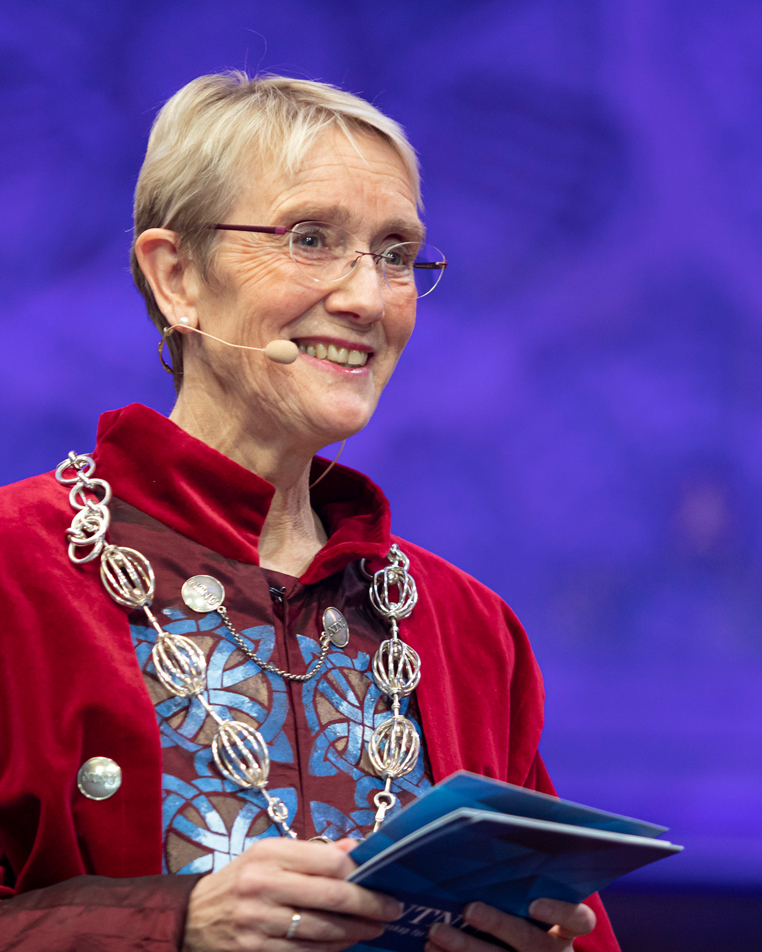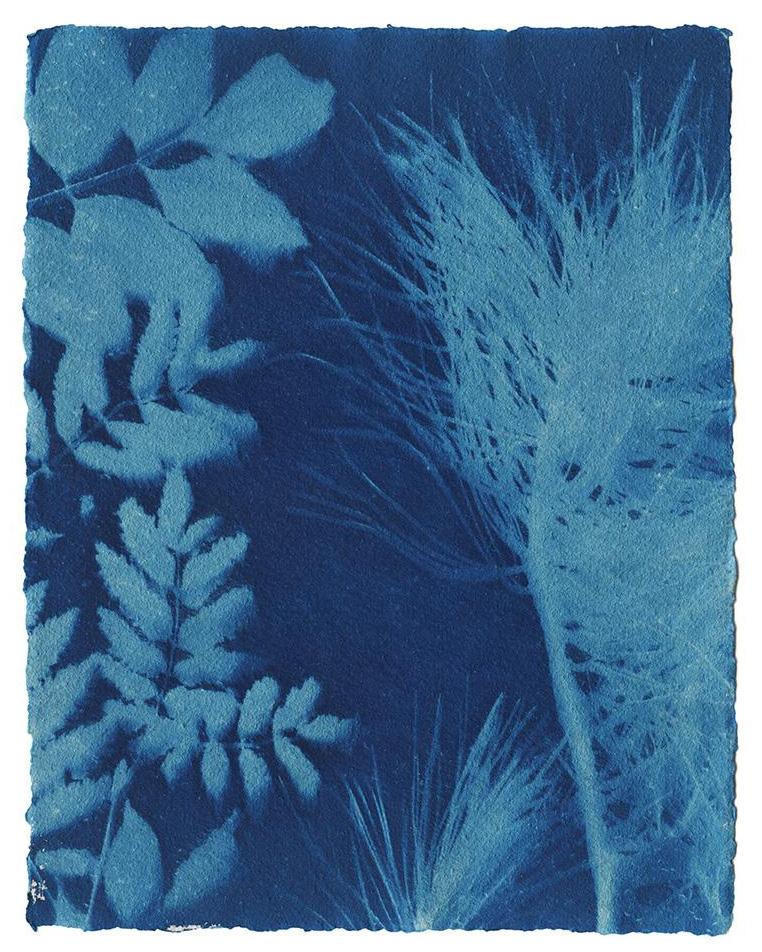
Greetings, newly promoted doctor
The Rector's speech Thursday 18 November:
Dear new doctors,
Congratulations!
In the past year, 433 students completed their PhD at NTNU.
Here, we are celebrating 107 of you today. In fact, never before have so many new doctors gathered at the same time here in the Aula for this solemn ceremony. For every one of you, it marks an important milestone, and one of the year’s really big days of celebration here at NTNU. As Rector, it is with both pride and humility that I share this occasion with you.
Soon you will receive your doctoral diploma as tangible evidence of what you have achieved; the highest academic education one can get.
Your doctoral degree will give authority and weight to the views you communicate. Use that authority wisely!
This ceremony also marks the end of your education at NTNU. This does not mean your ties to NTNU will be cut from today. On the contrary! We regard you as our ambassadors and an important part of our national and international network.
So I hope you will take good care of your contact with NTNU in your future career. You are important to us! And, let me add – NTNU and the network you have built up over the years with us will also be important to you in the years ahead.
Above all, from today you are ambassadors of knowledge. And this we know – Knowledge needs good ambassadors, today more than ever.
The pandemic has been a powerful reminder that knowledge can mean the difference between life and death. And that respect for knowledge can never be taken for granted. Nor can we take democratic values for granted.
The two are close relatives, and they need us to stand up for them.
Stand up for knowledge and democratic values with all the authority your doctorate gives you. Contribute to open, evidence-based debate and be a clear counterweight to unqualified assumptions and ignorance.
I am glad that in the wake of the pandemic, despite all the opposing forces, we have seen growing awareness of how important research is to society. And not least – how important it is to work together, across disciplines and national borders. The great challenges in society can only be solved through interdisciplinary efforts.
The same applies to the greatest and most urgent of them all – climate change and the need for more sustainable development. Fighting poverty and injustice, while protecting the environment for future generations.
Fortunately, research knows no borders. Working together with the very best academic communities, wherever they are, is vital for developing new solutions to tomorrow’s problems.
Knowledge always makes a difference. For individuals, for society, for the world. At NTNU, we call it Knowledge for a Better World.
In her doctoral thesis, Cristiana Golfetto has studied various ultrasound techniques. Her research can help to detect anomalies in critical organs such as the coronary arteries, kidneys, and thyroid gland – but it can also be used to discover possible leaks in oil and gas wells.
Nikolai Helth Gaukås has used his PhD work to develop environmentally friendly nanofilms, which can act as mini power plants inside the body by harvesting energy from the body’s mechanical movements. This allows them to extend the life of today’s pacemakers and open the way for the next generation of more complicated and energy-demanding electronic implants.
These are two examples of knowledge that makes a difference. Many more could have been mentioned. Through your work on your own PhD, every one of you has contributed knowledge that will make a difference. - And you have achieved that at an especially demanding time.
There have never been any shortcuts to a doctorate. It’s about ambitions, it’s about hard work, it’s about having a goal and never letting that goal slip out of sight. As it was carved in stone in this aula more than a hundred years ago, above the entrance to the library. Per aspera ad astra – through adversity to the stars.
Completing a PhD during a pandemic has added a solid dose of adversity. For many months, you could not travel abroad and meet your colleagues face to face. You have had to work from home, which has not given you the best possible working conditions. Many candidates have had digital or hybrid public defences. Completing a doctorate under such conditions inspires great respect!
In our strategy, we state that knowledge provides people with opportunities and influence, as well as a foundation for making wise choices. Knowledge inspires and challenges. It changes attitudes, mindsets, and the way we see the world. Informed debate strengthens our democracy.
Dear new doctors. You have great riches to manage.
The knowledge you have developed and share with society will help determine what tomorrow’s society will look like.
I wish you all the best for the future! Wherever the road takes you from here, carry on creating Knowledge for a Better World.
Rector
Anne Borg
The Rector'speech Friday 19 November:
Dear new doctors,
Congratulations!
In the past year, 433 students completed their PhD at NTNU.
Here, we are celebrating 122 of you today. In fact, never before have so many new doctors gathered at the same time here in the Aula for this solemn ceremony. For every one of you, it marks an important milestone, and one of the year’s really big days of celebration here at NTNU. As Rector, it is with both pride and humility that I share this occasion with you.
Soon you will receive your doctoral diploma as tangible evidence of what you have achieved; the highest academic education one can get.
Your doctoral degree will give authority and weight to the views you communicate. Use that authority wisely!
This ceremony also marks the end of your education at NTNU. This does not mean your ties to NTNU will be cut from today. On the contrary! We regard you as our ambassadors and an important part of our national and international network.
So I hope you will take good care of your contact with NTNU in your future career. You are important to us! And, let me add – NTNU and the network you have built up over the years with us will also be important to you in the years ahead.
Above all, from today you are ambassadors of knowledge. And this we know – knowledge needs good ambassadors, today more than ever.
The pandemic has been a powerful reminder that knowledge can mean the difference between life and death. And that respect for knowledge can never be taken for granted. Nor can we take democratic values for granted.
The two are close relatives, and they need us to stand up for them.
Stand up for knowledge and democratic values with all the authority your doctorate gives you. Contribute to open, evidence-based debate and be a clear counterweight to unqualified assumptions and ignorance.
I am glad that in the wake of the pandemic, despite all the opposing forces, we have seen growing awareness of how important research is to society. And not least – how important it is to work together, across disciplines and national borders. The great challenges in society can only be solved through interdisciplinary efforts.
The same applies to the greatest and most urgent of them all. Climate change and the need for more sustainable development. Fighting poverty and injustice, while protecting the environment for future generations.
Fortunately, research knows no borders. Working together with the very best academic communities, wherever they are, is vital for developing new solutions to tomorrow’s problems.
Knowledge always makes a difference. For individuals, for society, for the world. At NTNU, we call it Knowledge for a Better World.
Gunn Berit Neergård has researched how nurses can discover and tackle problems – what she calls entrepreneurial nursing. Her research could help nurses to drive development in the health service themselves, contributing to positive changes.
Tina Ringstad has researched structures and mechanisms of the human language faculty – and systematized differences between the language of children and adults. Through insight into which aspects of language must be learned and which are innate, this research can help in assessing atypical language development and understanding how we acquire language.
These are two examples of knowledge that makes a difference. Many more could have been mentioned. Through your work on your own PhD, every one of you has contributed knowledge that will make a difference. - And you have achieved that at an especially demanding time.
There have never been any shortcuts to a doctorate. It’s about ambitions, it’s about hard work, it’s about having a goal and never letting that goal slip out of sight. As it was carved in stone in this aula more than a hundred years ago, above the entrance to the library. Per aspera ad astra – through adversity to the stars.
Completing a PhD during a pandemic has added a solid dose of adversity. For many months, you could not travel abroad and meet your colleagues face to face. You have had to work from home, which has not given you the best possible working conditions. Many candidates have had digital or hybrid public defences. Completing a doctorate under such conditions inspires great respect!
In our strategy, we state that knowledge provides people with opportunities and influence, as well as a foundation for making wise choices. Knowledge inspires and challenges. It changes attitudes, mindsets, and the way we see the world. Informed debate strengthens our democracy.
Dear new doctors. You have great riches to manage.
The knowledge you have developed and share with society will help determine what tomorrow’s society will look like.
I wish you all the best for the future! Wherever the road takes you from here, carry on creating Knowledge for a Better World.
Rector
Anne Borg


